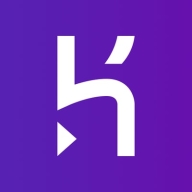

Google App Engine and Heroku are competing cloud platform services, each offering distinct advantages. Google App Engine holds the upper hand in scalability and seamless integration with other Google Cloud services, making it a strong contender for enterprises embedded in the Google ecosystem. Heroku shines with its simplicity and developer-friendly interface, making it a popular choice among smaller teams for its ease of use.
Features: Google App Engine offers robust scalability, automatically managing resources with its pay-as-you-go model. It supports multiple languages such as Python, Java, and Node.js. A key advantage is its integration with various Google Cloud services, providing a comprehensive cloud solution. Heroku's value lies in its simple deployment process and extensive add-on ecosystem, making it easily extendable. Its continuous integration and application deployment features are highly praised, particularly for Node.js and Ruby on Rails environments.
Room for Improvement: Google App Engine could enhance user experience with a more intuitive deployment process and reduce complexities in configuration. Increasing flexibility, such as offering equivalent services for different app needs, would be beneficial. Heroku, while easy to use, may suffer from higher costs at scale; optimizing costs for larger deployments would be advantageous. Its free tier limitations and add-on pricing could be areas for reevaluation.
Ease of Deployment and Customer Service: Heroku provides an intuitive deployment process using Git, supporting CI/CD workflows with straightforward rollback capabilities and accessible documentation. Its customer service efficiently supports smaller organizations. Google App Engine's deployment process is more complex but offers powerful customizations. It provides enterprise-level customer support with comprehensive SLA options.
Pricing and ROI: Google App Engine offers flexible pricing suited for scalable applications with sustained discounts for long-running services. Heroku uses dyno hour-based pricing with clear tiered options. Though Heroku can incur higher costs at scale, its ease of use may justify the expense for rapid development. Google App Engine provides better ROI for companies leveraging extensive cloud services and requiring scalability.
| Product | Market Share (%) |
|---|---|
| Google App Engine | 2.5% |
| Heroku | 3.5% |
| Other | 94.0% |

| Company Size | Count |
|---|---|
| Small Business | 15 |
| Midsize Enterprise | 7 |
| Large Enterprise | 13 |
| Company Size | Count |
|---|---|
| Small Business | 23 |
| Midsize Enterprise | 2 |
| Large Enterprise | 3 |
Google App Engine is a Platform-as-a-Service (Paas) provider that equips web application developers with all the resources and tools that they need to develop, test, and run their applications on Google's infrastructure. Everything is built into the kit, so with one download of the SDK, you'll be well on your way to first-rate apps.
Established in 2007, Heroku is a cloud application platform providing a streamlined, efficient place for web app developers to create and deploy their applications. Heroku is designed to maximize developer productivity. With the entire web application development process available on the Herokucloud, creating and rolling out web apps has been made more efficient, convenient, and cost-effective than ever before.
We monitor all PaaS Clouds reviews to prevent fraudulent reviews and keep review quality high. We do not post reviews by company employees or direct competitors. We validate each review for authenticity via cross-reference with LinkedIn, and personal follow-up with the reviewer when necessary.